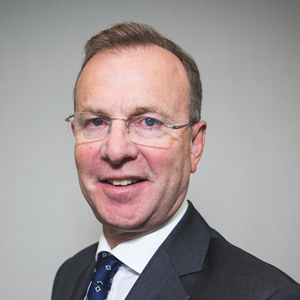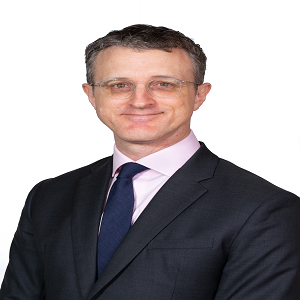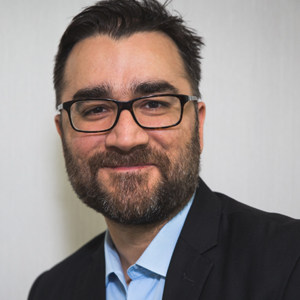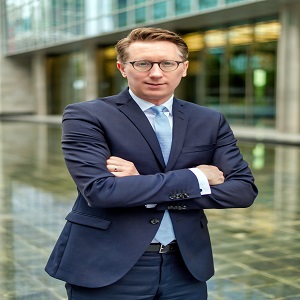"Implementing ESG assessments will help set clear KPIs and identify where and how projects generate value and mitigate risks associated with them."
Times are changing. The world is moving toward an ethical, long-term sustainable way of investing. Forward-looking governments are increasingly emphasizing the role of financial markets in fostering sustainable development. Investor demand for responsible investment (RI) solutions has increased significantly, as observed by the growth of assets being allocated to RI-related investments. Combined with the shift toward low-cost equity index tracking, this has led to an increase in the number of RI indices that are now available.
We expect RI indices to become an important first step in integrating environmental, social and corporate governance (ESG) considerations for many investors with existing passive or factor-based investments. At Mercer, we define Responsible Investment as the integration of ESG factors into investment management processes and ownership practices in the belief that these factors can have a material impact on financial performance.
Meanwhile, in the GCC region, with efforts to diversify the economy, governments are gaining awareness around the importance of responsible investing. The GCC makes up four of the six Sovereign Wealth Funds (SWF), which founded the One Planet SWF Working Group in December 2017 at the occasion of the "One Planet Summit" in Paris.
Within the UAE itself, numerous initiatives — such as The Green Economy for Sustainable Development and Green Agenda — are propelling the country into the future of responsible investing. In keeping with the diversification strategy, these initiatives support Vision 2030 by aligning with the nation's economic growth ambitions and environmental sustainability goals.
Abu Dhabi is contributing to the agenda in a major way through various developments, such as Masdar City — a multi-billion dollar green energy project.1 Meanwhile, Dubai set up an energy and environment park called Enpark — a Free Zone for clean energy and environmental technology companies.2
As the business case for responsible investing gets stronger in the GCC, there is a growing demand for incorporating ESG factors or sustainability themes into investment decisions and processes. Institutions are factoring the benefits of responsible investing, not only to their investments but also to their reputation and bottom line. Sustainable investing offers attractive opportunities to tap into the growth potential of companies providing solutions to various challenges of resource scarcity, demographic changes and changes in the evolving policy responses to a range of environmental and social issues.
Studies and industry evidence have shown the benefits of integrating ESG factors on the company's long-term performance. For example, Deutsche Bank reviewed more than 100 academic studies in 2012 and concluded that companies with higher ESG ratings had a lower cost of capital in terms of debt and equity. Another study in 2015 by Hsu (Professor at the National Taichung University of Science and Technology, Taiwan) and Cheng (Professor at the National Chung Hsing University, Taiwan) found that socially responsible firms perform better in terms of credit ratings and have lower credit risk.3
With companies operating against the setting of public concerns around environmental and social issues, incorporating ESG considerations is now also considered best practice. Employees increasingly want to work for and invest in companies that make a positive environmental impact. Global initiatives and bodies, such as the CFA Institute, have highlighted the financial and reputational risks of not taking ESG considerations into account.
While the GCC is beginning to understand the benefits of applying ESG, the region hasn't been too far from its concept. Sharia-compliant investing has been around for the last two decades. Both frameworks apply the negative screening approach and seek investments which provide a sustainable return. With the combination of ESG factors and Sharia screening, Islamic investors can improve investment performance while meeting social and environmental goals at the same time.
As the UAE is now focusing on diversifying its investments, it can highly benefit from creating a responsible investing market and culture where strategy and processes go hand-in-hand as important steps for successful integration.
When seeking sustainable growth, an additional layer of insight and oversight is extremely crucial to mitigate emerging risks, like climate change. To that end, implementing ESG assessments will help set clear KPIs and identify where and how projects generate value and mitigate risks associated with them.
For example, Mercer applies an Investment Framework for Sustainable Growth with its clients, which distinguishes between the financial implications (risks) associated with environmental, social and corporate governance factors and the growth opportunities in industries most directly affected by sustainability issues. Measuring impact and mitigating risks has become increasingly important and represents a strong investment governance process.
The benefits of adopting ESG are numerous. While the GCC has started with the implementation of ESG principles, more work still needs to be done in making sure governments are fully engaged with stakeholders, including investors, and strategies are aligned across the region.
Regulatory pressures to meet global standards of ESG integration will only increase in the coming years. Instead of hiding from it, it is time for companies, investors and governments to come together and define a way of working that moves the GCC forward in terms of responsible investing and sustainable growth.
1Carvalho, Stanley, "Abu Dhabi To Invest $15 Billion in Green Energy," Reuters, January 21, 2008, https://www.reuters.com/article/environment-emirates-energy-green-dc/abu-dhabi-to-invest-15-billion-in-green-energy-idUSL2131306920080121
2Energy and Environment Park:Setup Your Company In Enpark, UAE Freezone Setup, https://www.uaefreezonesetup.com/enpark-freezone
3Chen, Yu-Cheng and Hsu, Feng Jui, "Is a Firm's Financial Risk Associated With Corporate Social Responsibility?"Emerald City, 2015, https://www.emeraldinsight.com/doi/abs/10.1108/MD-02-2015-0047









.jpg)
